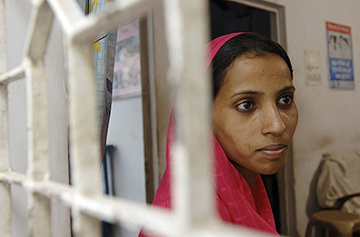Delhi, infamous as the ‘rape capital’, yet again tops as the city unsafe for women
The National Crime Record Bureau (NCRB) has released its 2019 ‘Crime in India’ report which again shines a light on just how unsafe women are in the country. Reports in the past couple of months have told us about ghastly attacks on women, of gangrapes in Uttar Pradesh, of Dalit women being targeted, of elderly woman and children raped in the Capital.
One of the more shocking ones from Delhi was in September, when a 90-year-old woman was raped and assaulted in Najafgarh area. The accused took the nonagenarian to a farm area and brutally raped her multiple times, even as she cried and pleaded with him. as of his grandmother’s age but it didn’t stop the accused.
The Delhi Police has registered an FIR under Sections 376 (Punishment for sexual assault) and 323 (Punishment for voluntarily causing hurt) of the Indian Penal Code and the accused has been arrested.
NCRB data suggests that the overall crime against women is the highest (15.3%) in Uttar Pradesh among all other states. But amongst the 19 metropolitan cities with a population of over two million, the data shows that Delhi has recorded the greatest number of crimes against women with 12,902 cases reported last year — accounting for 28% of total such cases in these cities.
With the Capital city being infamous as the rape capital, we look at how it has treated its women yet again in the year 2019. The total rape cases were at 1,253 in 2019, with a majority at 1,237 cases where the offender was known to the victim.
Next, the assault on women with intent to outrage her modesty which comes under section 354 of IPC, saw a total of 2,355 cases in Delhi.
There were also eight cases of acid attack (Sec. 326A IPC) and ten cases of attempt to attack with acid (Section 326B IPC). Murder with rape or gang rape accounted for five victims.
But the greatest number of cases registered was under the ‘Cruelty by Husband or his relatives (Sec. 498 A IPC) with 3,792 cases. Dowry Deaths (Sec. 304B IPC) had 117 victims in 2019. At the same time, the cases pending investigation from 2018 in Delhi on crimes against women was a whopping 18,819 and at the same time a further 13,395 were reported in 2019, adding to the list of people who need justice.
In Delhi, the ‘Court Disposal of Crime against Women’ saw the trials of 3,550 completed in 2019, whereas 4,496 were disposed of by courts. What’s revealing and worrying is that the cases pending trial at the end of the year stood at 53,105 making it a pendency rate of 92.2% and conviction rate of 41%.
And this year things won’t be quite different for women living in abusive homes. The pandemic and its forced lockdown have had a major crisis for the safety of women, as they were trapped in homes where they faced domestic abuse. The founder of Sakshi NGO Mridula Tandon tells us that the Mahila helpline ‘181’ that they help the Delhi government to run received a fraction of calls because the victim was trapped.
Usually, she says, before the pandemic a woman would call the number, “depending on the area, that NGO would answer, go with a driver, a social worker, a counsellor, a home guard and the local police station is alerted so the beat constable more often comes along. Whatever violence is happening or aggression has happened is sorted out, if needed the victim is taken to hospital and also given legal counselling and shelter and the case is seen to a conclusive end or handed to Mahila Aayog for further follow up”.
What changed was that women were not coming forth to report, the social workers were asked to work from home, so there weren’t any home visits taking place. “Victims were locked in together with the abuser. So, there has been a huge spike in the cases of domestic abuse and the women did not even have the recourse to call us because the minute she would pick up the phone, he would pounce on her. The only time they managed to call us was when they went to the community toilet taking a neighbour’s phone to call us. It was a terror. We pleaded at that time to give us a centre in the community so that workers could be present there to help the women in need. But that didn’t happen.”
Now with the lockdown lifted, women have more of a chance to breathe and call or run for help in a city, which constantly fails to protect it.
(Cover: A woman brutalized for a year by her in-law family because she was refusing to pay an extra dowry // Representational Image// Credit: Getty)





